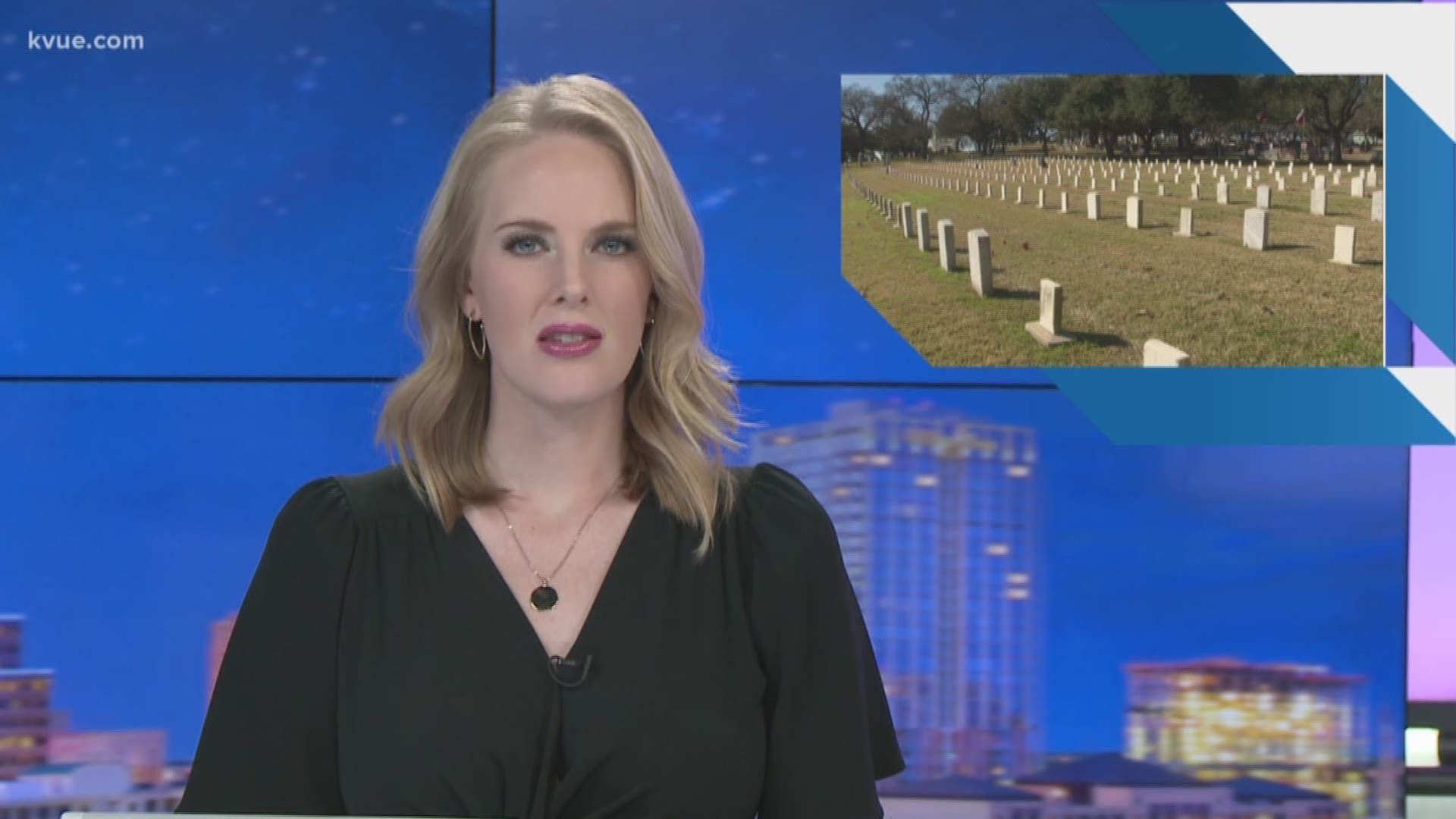AUSTIN, Texas — Joseph Walker was a veteran who served in the U.S. Air Force during the Vietnam War.
Although he served from September 1964 to September 1968, no family and no friends were able to claim his body, thus it appeared no one planned to attend his funeral on Monday.
While his story has now been heard across the nation and is sure to bring in a large crowd Monday, many have begun to wonder what happens when no one is available to claim the body of a fallen veteran.
The answer can be found within the Texas Veterans Land Board Cemetary Program.
During his first term in 2015, Texas Land Commissioner George P. Bush implemented the Unaccompanied Veteran program. Before the January 2015 implementation, the land office said:
- Veterans were brought into the cemetery and “direct no witness” burials took place. (remains brought to the cemetery and interred with no honors or recognition of their military service)
- Veterans were often buried in Paupers/County graves with no headstones.
- Counties and local funeral homes were burdened with the veteran's remains and how to properly seek honorable disposition.
- County judges were left to make decisions on accepting responsibility for disposition of the veteran's remains. (Many stepped up as it was the right thing to do)
- Many in the local and surrounding communities were not aware veterans were interred alone.
- Veterans were sometimes buried in heavy cardboard type containers, as VA would not fund a casket for homeless or indigent veterans unless they were interred at a national cemetery. After inquiries and requests from state programs, including the Texas State Veterans Cemeteries, VA agreed to fund caskets for indigent/homeless veterans interred at state and tribal cemeteries.
- Veterans are all afforded free headstones, but these would often end up stacked up at cemetery facilities, due to costs associated with installing the headstones and no family to complete.
- Care facilities, Nursing facilities, and Long-Term care facilities were not aware the Patriots could be handed off to the state veterans cemeteries for honorable and dignified services.
RELATED:
But now that the program is in place, the land office said the following benefits are available for unaccompanied veterans:
- All eligible veterans are now interred with honor and dignity, regardless of where they may have found themselves in life. The absence of next-of-kin may occur for a variety of reasons, such as:
- The aging veterans next-of-kin may have died off and survivors cannot be located.
- Veterans may have separated themselves from next-of-kin due to family discord.
- Veterans may suffer mental health issues or other ailments leading to societal isolation.
- Texas State Veterans Cemeteries has bolstered relationships with community stakeholders, such as local funeral homes, county services, and local judges, to ensure the veterans are given honorable and dignified services.
- Communities have provided significant and overwhelming support for the Unaccompanied Veterans Services, with considerable turnouts to support and honor the veteran during this right of passage.
- The term “Homeless Veteran” was dropped in lieu of “Unaccompanied Veteran” early during the implementation of these standard interments. The program felt the absence of next-of-kin should not factor into defining the veteran as homeless. When the representatives of the Texas Veterans Land Board accept the flag during the services, we do so as members of the military family. We accept the veteran's remains to be placed in hallowed grounds among other military family members.
- Children are often brought to the services by parents and educators to highlight the importance of service, sacrifice and honor.
- The Unaccompanied Veterans Services stand as testaments to the respect and understanding the communities have of the value of the military family. Although the veterans may not have families or next-of-kin present for their homegoing celebrations, they can rest peacefully knowing the military family never forget and never leaves a veteran behind.
- Unaccompanied Services have unintentionally led to reunification of families and next-of-kin.
- On several occasions, family and/or next-of-kin have shown up unexpectedly after picking up the news of a pending Unaccompanied Veterans services via social media, news, community notifications.
- Veterans Land Board Representatives accept the flag used during the services on behalf of the family and/or next-of-kin but hold the flag for 90 days if no next-of-kin is found or comes forward. After the 90-day period expires, the flag is flown on the cemetery main flag pole to honor the veteran's service and as a reminder that we never leave veterans behind.
- Several community members donate resources, time and effort to ensure an honorable and dignified service:
- A local flower shop in the Killeen area donates free floral arrangements for each Unaccompanied Veteran service.
- Members of the all-volunteer Memorial Service Detachments (MSD) provide military honors.
- Patriot Guard Riders (motorcycle club of veterans) volunteer to lead procession into the cemeteries and assist with overseeing all aspects of the services.
- Our cemeteries have dedicated walls of honor, which began with the Coastal Bend State Veterans Cemetery in Corpus Christi, to honor interred Unaccompanied Veterans. Local veterans groups create and present small wooden placards to cemetery staff, consisting of the veteran's information, which proudly hang on the administrative building walls.
"VLB Texas State Veterans Cemeteries are special resting places, close to home, where friends, family and fellow Texans can honor Texas Veterans," said Karina Erickson, communications director for the Texas General Land Office. "The sacrifices they laid upon the altar of freedom will never be diminished nor forgotten. The staff at our Texas State Veterans Cemeteries are there to help each Texas veteran and their family at their time of need."
She said burial benefits at Texas State Veterans Cemeteries are identical to those at federal VA cemeteries.

